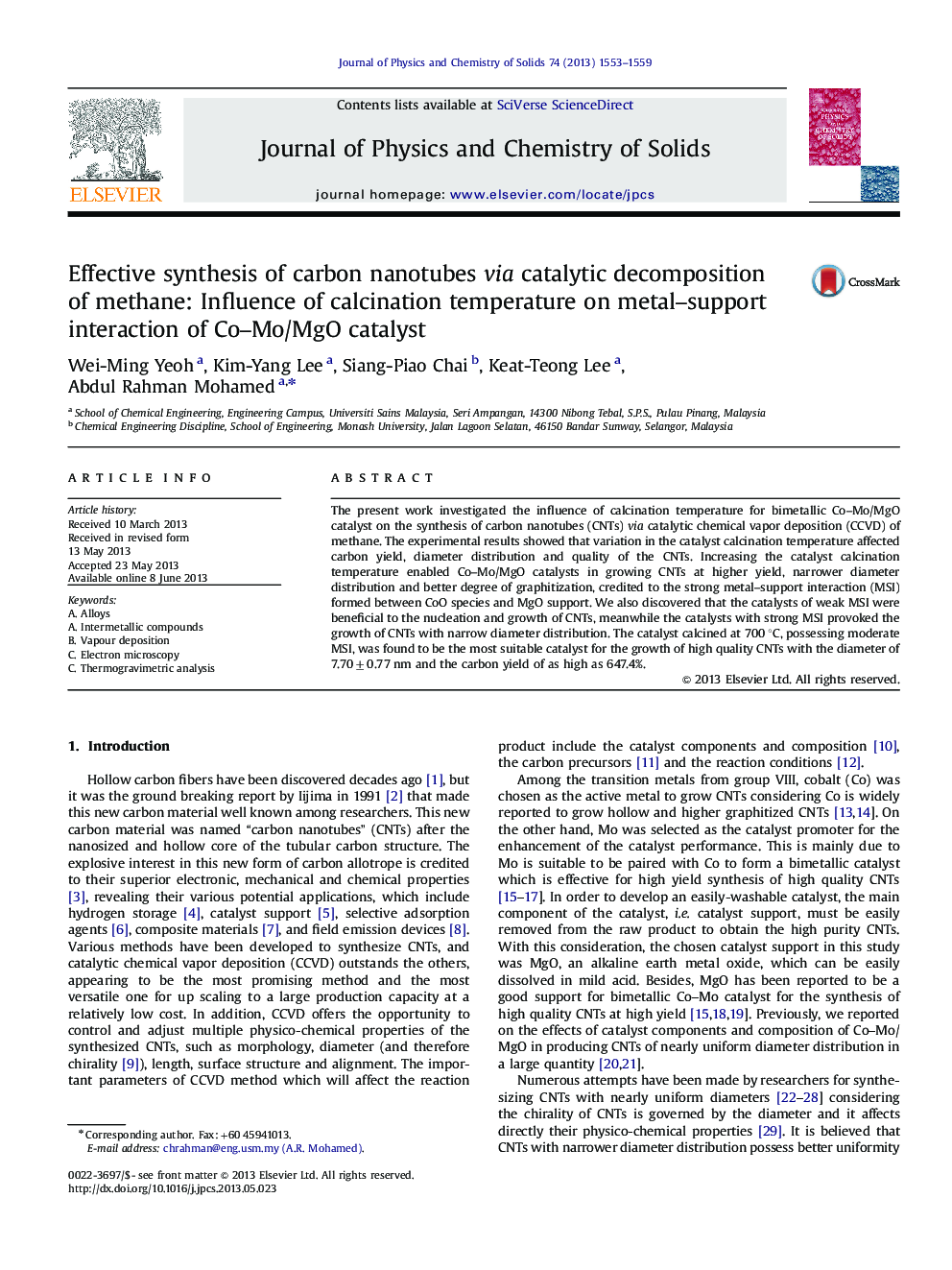| Article ID | Journal | Published Year | Pages | File Type |
|---|---|---|---|---|
| 1516270 | Journal of Physics and Chemistry of Solids | 2013 | 7 Pages |
•Higher calcination temperature promotes the formation of thermally stable compounds.•Increasing catalyst calcination temperature enhances the strength of catalyst MSI.•Thermally stable compounds provoked high yield synthesis of CNTs.•Catalyst with weak MSI is beneficial for nucleation and growth of CNTs.•Catalyst with strong MSI is important for the growth of CNTs with uniform diameter.
The present work investigated the influence of calcination temperature for bimetallic Co–Mo/MgO catalyst on the synthesis of carbon nanotubes (CNTs) via catalytic chemical vapor deposition (CCVD) of methane. The experimental results showed that variation in the catalyst calcination temperature affected carbon yield, diameter distribution and quality of the CNTs. Increasing the catalyst calcination temperature enabled Co–Mo/MgO catalysts in growing CNTs at higher yield, narrower diameter distribution and better degree of graphitization, credited to the strong metal–support interaction (MSI) formed between CoO species and MgO support. We also discovered that the catalysts of weak MSI were beneficial to the nucleation and growth of CNTs, meanwhile the catalysts with strong MSI provoked the growth of CNTs with narrow diameter distribution. The catalyst calcined at 700 °C, possessing moderate MSI, was found to be the most suitable catalyst for the growth of high quality CNTs with the diameter of 7.70±0.77 nm and the carbon yield of as high as 647.4%.
